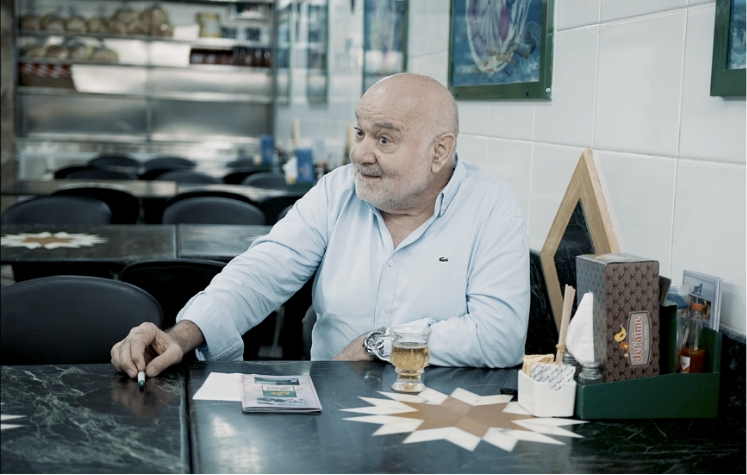You Will Defs Like these too
Life Video of The Day

Lux vs. Low: MakeupJul.19.2020
New at The Modern East
Sign Up To Our Newsletter
[ninja_forms_display_form id=20]

Beirut smells like blood. Beirut, after the tragedy resulting from the 4th of August explosion, is covered in dust and rubble. Beirut feels like a jail cell for those living there. Fearful they might lose their loved ones at any given time. Fearful parents worried over how they to get by. People in the capital are sleeping in the shattered remains of their homes during a lethal pandemic with a fraudulent economy. There are few words that could describe the detrimental effects this will leave on them for as long as they live.

Photo Credits: Arab News
In 2020, Lebanon had endured several crises, some of which include the detrimental explosion on the 4th of August, increasing political instability and protests, the economic collapse caused by the depreciation of the Lebanese pound, and the consequences of the Covid-19 pandemic. Unfortunately, the Lebanese political class has failed to appropriately and sufficiently address these crises, even though some were by their own making. Since October 2019, the Lebanese pound has lost over 80 percent of its value. This corroded the Lebanese people’s ability to gain access to basic goods needed to survive, such as shelter, sustenance, and healthcare. To make matters worse, the Covid-19 pandemic also ruthlessly affected the medical sector, decreasing hospitals’ ability to provide care that could save lives. Even more so, electricity blackouts in Lebanon reached a record, lasting up to exactly 22 hours in a day during the summer. The Lebanese people sit in their homes, the only thing lighting the ruins of their houses are candles.
As a Lebanese myself, I am utterly heartbroken. However, I do recognize the privilege I have had to be able to travel and live a safe life somewhere else. But many of the Lebanese people, unfortunately, do not have the opportunity to go somewhere else. My cousins living in Lebanon study on WhatsApp. The children, our future, are forced to stay at home because of the pandemic, and the government does not help make the situation better. A 17-year-old Lebanese girl named Sahar said: “School has closed. My teachers are now using WhatsApp as an alternative, but we’re finding it difficult to grasp the material. Our curriculum is hard as it is, let alone having to learn it over the phone.” What is happening in Lebanon is heartbreaking and unacceptable. People struggle to live their day-to-day lives. Sadly, some even go as far as to commit suicide, for the fear of not knowing what will come tomorrow or if they will be able to provide for their families. A Lebanese man by the name of Ali took his life, writing on his chestانا مش كافر بس الجوع كافر, which roughly translates to “I am not a sinner, but the hunger is a sin.”

Photo Credits: Al Mayadeen
Over the last few decades, Lebanon has been repeatedly shaken by the armed conflicts and wars it has had to endure. The deteriorating economy. The waste and garbage covering the streets. That left the Lebanese people scathed at physical and psychological levels. For example, many years after it has ended, the 2006 Israeli-Lebanese conflict haunts its survivors. Adults in Lebanon are left dealing with PTSD, depression, anxiety and many more mental disorders that are usually left untreated due to the poor mental health facilities that are offered. Furthermore, survivor’s guilt tends to show prominently in adults as a result of traumatic experiences which consequently further amplifies their PTSD symptoms. As for Lebanese children, childhood is a formative stage whereby negative experiences such as this destructive explosion may have a long-term impact on many areas of their growth. On average, Lebanese children experience five to six different types of war-related trauma. Children who are exposed to such traumatizing events and are separated from their parents are more likely to exhibit PTSD and depression symptoms.
How You Can Help

Photo Credits: Instagram (@theobaf @melissafreiha)
Thousands of people’s lives were changed after the Beirut explosion. More than 130 people have died, another 4,000 are injured, and an estimated 300,000 were displaced from their homes. These counts are also likely to increase as new details emerge. So, what can you do?
If you have called and checked up on your loved ones, that would have been the very first step. If you listened to your Lebanese friend cry over what happened, you have helped. If you shared valuable information on your social media and proved your support, you have helped. Whether you feel like your help was big or minuscule compared to others, this is not the time to belittle yourself. The smallest actions lead to the greatest changes. Because hospitals in Lebanon are inundated with new victims every hour, relief groups in the country need money and resources urgently. If you are able to donate, whether it be clothes, medical aid, sanitary products, or food, make sure you do so to trustworthy organizations such as the Lebanese Red Cross, Impact Lebanon, and other local NGOs.
Not only did the explosion in Beirut ruin and destroy the buildings and grounds of the country, but it also demolished the lives of Lebanese civilians forever. It has left a scar in the Lebanese people’s hearts that will forever remain, but, despite that, they remain hopeful for a better future free of the worries and struggles they currently live in.

